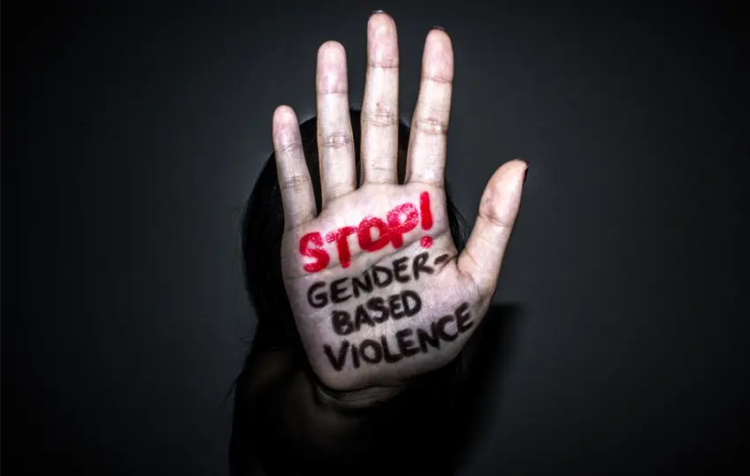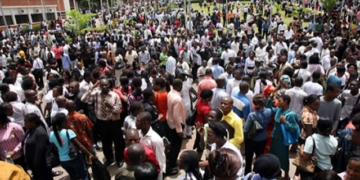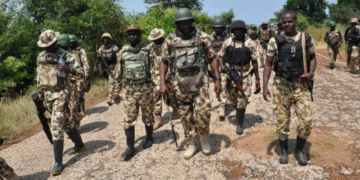Gender-based violence (GBV) refers to harmful acts directed at an individual based on their gender. It includes sexual, physical, mental and economic harm inflicted in public or in private. It also includes threats of violence, coercion and manipulation more often on a woman or girl. This can take many forms such as intimate partner violence, sexual harassment and rape.
It may also include controlling behaviours such as female genital mutilation, forced child/ early marriage and discrimination. GBV can happen to anyone, however, it disproportionately affects women and girls particularly lower-middle-income countries more.
The World Health Organization estimates that nearly 1 in 3 women aged 15 and older have been subjected at least once in their lifetime to physical or sexual violence from a current or former intimate partner, a non-partner, or both. However, access to services and supports for survivors of GBV is becoming more constrained in a growing number of situations across the world. According to the United Nations High Commissioner for Refugees, 1 in every 4 girls and 1 in every 10 boys in Nigeria will have suffered some form of sexual violence before they turn 18. Worse still, less than 5 percent of them receive any form of support. Evidence shows that Nigeria’s North East has some of the highest rates of GBV in the country due to insurgency; which requires the absolute need for holistic services in health, legal, economic and psychosocial support to survivors. The United Nations Security Council adopted Resolution 2467, affirming the rights of survivors to access services, supports and justice. Survivor-centered services at the community level are essential but can be difficult to safely access and provide. GBV services include counselling, psychosocial support, healthcare/medical, safety, security and legal services; shelter/safe house, food/crisis assistance. Material support services include dignity kits, clothing, blankets, skills acquisition and livelihood support programmes.
Despite several GBV interventions by government and development agencies across states in Nigeria, there are existing gaps and constraints in providing GBV survivor-friendly responses including:
– Insufficient Sexual Assault Referral Centres (SARCs): The SARCs provide crucial and comprehensive response package for victims and families of GBV including free medical and psychosocial support.
Directory of SARCs in Nigeria reveals SARCs spread across 17 out of 36 states plus the FCT (EU, 2020). However, these services are insufficient given the high incidents of GBV especially in North East Nigeria. Most of the SARCs are located in urban centres, where rural dwellers have difficulty accessing services due to distance and lack of transport money. Harmful social norms, and the poor help-seeking behaviours, as well as factors connected with service providers are some of the reasons many survivors do not seek redress or services.
– Legal factors: Lack of GBV laws and poor implementation of GBV laws and policies is another major constraint to curbing incessant cases of GBV across states. Some states are yet to domesticate the Violence Against Persons Prohibition (VAPP) Act. Despite some milestone achieved, GBV still persists due to some constraints with the justice system including ignorance of VAPP laws; non-implementation of the VAPP Act and delay in legal processes all continue to contribute to delay in access to justice for victims.
Monye, Obiagbaoso and Obidegwu (2020) argued that in Nigeria, the justice system is fraught with a lot of challenges and many people may easily be discouraged and or reluctant to take the matter to court for adjudication due to time consumption of court proceedings. Other constraints include frequent adjournment of cases in court and corrupt handling of cases by some lawyers and law enforcement agents, family members influencing and putting pressure on the victim not to press charges or abandon the case. Failure to ensure a survivor-friendly judicial system, fosters situations which victims find discouraging, leading to fatigue, and loss of confidence in the system.
– Inadequate finance, budgetary provisions and high cost of seeking care and justice: Victims and their families are most times unable to afford the cost of seeking justice, especially the cost of going to the police or courts to follow up their cases; or even pay for medical treatment. The Police do not have financial budgeting and do not receive a financial allocation that is specific for gender units across the federation (CLEEN Foundation, 2023), hence they lack funds and have logistical constraints to support victims access health care and legal services. Victims are usually asked to pay to have their reports processed for arrest and eventual investigation.
A gap in dedicated budgetary allocations also means that it is difficult to prioritize institutional spending on GBV, or train personnel on survivor-friendly approaches for addressing GBV. Law enforcement agencies will also have skills gap to effectively respond to GBV cases. What this means is that they are not able to effectively carry out criminal investigation and arrest; detention and prosecution of perpetrators; escort movement; legal counselling and advice for survivors and their families. Social service agencies are also not able to provide for victim’s general, food, hygiene, health and psychosocial support, housing/shelter and economic empowerment needs.
– Culture of silence: Social norms that drive GBV are rooted in community structures that promote victim-blaming and their loss of respect in the community, including divorce and rejection. These fuels the culture of silence as families do all they can to protect their family name. They go as far as silencing survivors who want to speak out as families prioritize protecting family honor over safety of the survivor and access to services. Negative health and social consequences are never addressed because women do not disclose GBV to providers or access health care and legal services because of social norms that blame the woman for the assault (e.g., she was out alone after dark, she was not modestly dressed, she is working outside the home). Women who report their husbands are stigmatized and threatened with divorce, while prospective suitors may be sceptical to marry such women for fear of being prosecuted. The fear of rejection and stigma also fuels the culture of silence because survivors may be disowned and rejected by their families and communities.
Existing legal frameworks are inadequate to effectively address GBV, hence a new optional protocol to CEDAW represent alternative mechanisms to effectively combat GBV. This will go a long way in addressing the existing legal gaps and the culture of impunity in many parts of the world, ensure adequate multi-sectoral community responses, access to justice and services and implementation and monitoring measures including dedicated data collection and analysis.
– Ahmadu writes from Abuja











